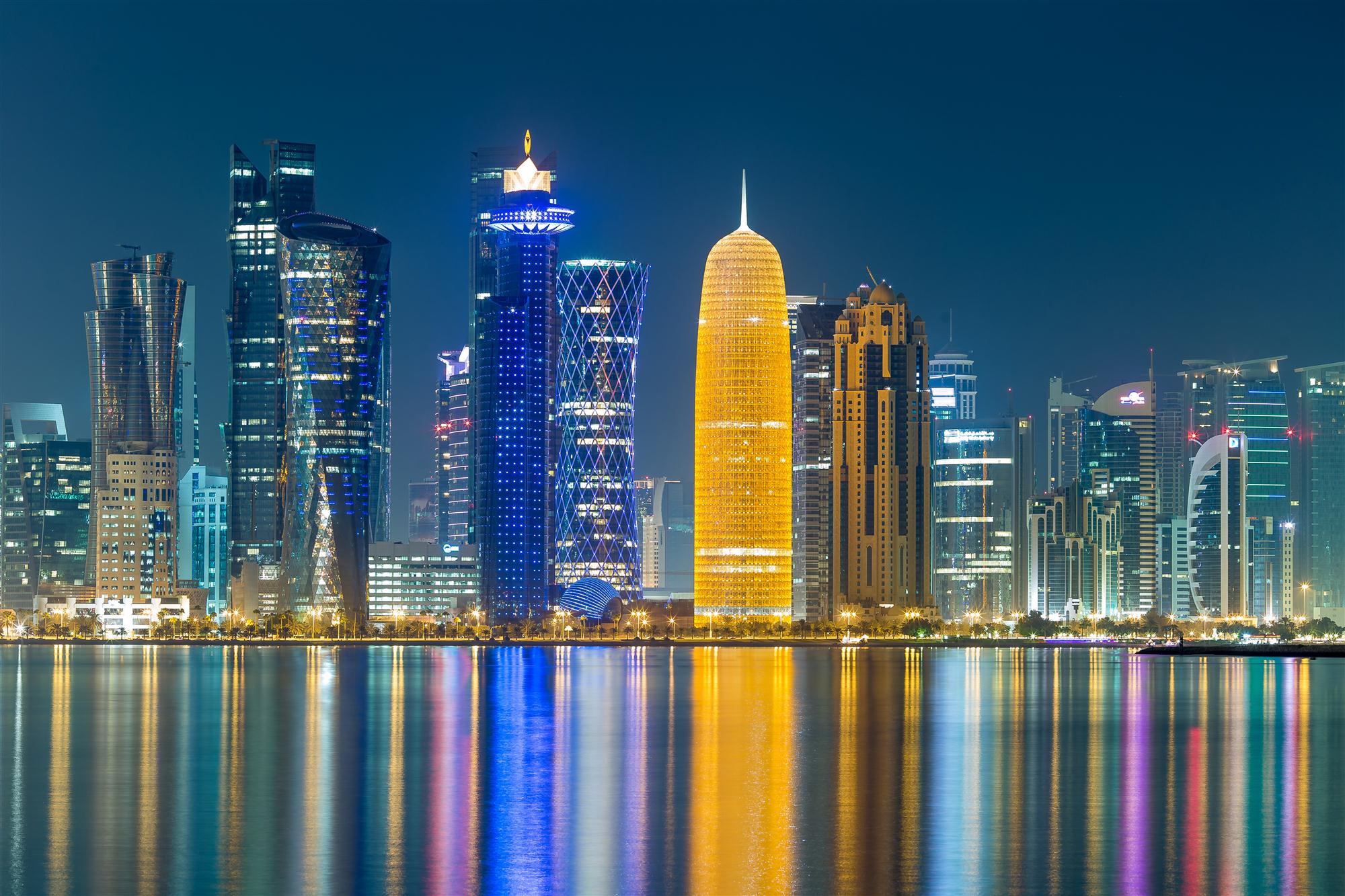The continuing boycott of Qatar by three member countries of the Gulf Cooperation Council and Egypt is causing unease in shipping circles of the German city of Hamburg.
Although Hamburg’s trade volume with Qatar, an oil-and-gas rich emirate and, until recently, a full-fledged GCC member, is not large, the impact of the boycott is felt, particularly, by Hamburg-based shipping line Hapag-Lloyd, which finds itself caught in the politics of the Gulf region and must carefully perform the diplomatic tight-rope walk.
When Hapag-Lloyd merged with Gulf-based shipping line UASC in May, both Qatar and its rival Saudi Arabia became major shareholders of Hapag-Lloyd.
Bahrain, Saudi Arabia and the United Arab Emirates, all members of the GCC, and Egypt discontinued shipping ties with Qatar, charging that Qatar supports terrorism, as well as encouraging and inciting radical elements such as the Muslim Brotherhood in Egypt to carry out extremist agendas. The airlines of the four boycotting states announced they would stop flying to Qatar, and would also not allow Qatar’s national carrier Qatar Airways to fly to their respective home airports.
The boycott has forced Qatar to carry out some of its trade through third states.
With no solution to the boycott in sight, and with Saudi Arabia prohibiting the use of its road routes for transporting food and other items to Qatar, the emirate began importing goods by ships entering Doha port or by air freight. Representatives of the Hamburg Chamber of Commerce and Industry, closely monitoring the situation in the Gulf, have been telling the media that according to their information, imported consignments meant for Qatar had been lying in the free trade zone of Jebel Ali in Dubai.

Speaking to reporters in Doha on August 30, Qatari foreign minister Mohammed bin Abdulrahman al-Thani said that his country is willing to negotiate an end to the rift, but that he has seen no signs that other Gulf countries are interested in opening a dialog. “Qatar maintains its position that this crisis can only be achieved through a constructive dialogue, but the blockading countries are not responding to any efforts being conducted by Kuwait or other friendly countries,” he said.
According to the Hamburg Chamber, there are 147 Hamburg-based companies with business ties to Qatar. Foreign trade between Hamburg and Qatar was about €145 million (US$172.5 million) in 2016; in contrast, Hamburg’s trade with the UAE last year amounted to €7.2 billion, and around €183 million with Saudi Arabia. Currently, there are eight shipping lines operating between Hamburg and the ports of Doha, Hamad and Ras Laffan, transporting mainly heavy goods and cars.
Hamburg imports, mainly, crude oil products from Qatar, while it exports aircraft to that emirate. Hamburg’s trade volume with Qatar is not so huge “as to significantly impact Hamburg’s economy with far-reaching consequences,” according to an initial evaluation by the city’s economic development authority.
However, the Qatar crisis could still pose problems for Hamburg’s trade relations with the remaining countries of the region. Saudi Arabia, where the government is run by Sunni followers of Islam, Iran, which is led by Shia followers of Islam, are the two biggest and strongest states in the region; they are also rivals colliding against each other in Yemen and Syria through proxy wars. The three GCC states have isolated Qatar, also a Sunni state, because of its alleged support for Iran.
While maintaining close trading ties with the UAE, particularly Dubai, Hamburg has also intensified its economic ties with Iran ever since sanctions were lifted against it following the international nuclear deal worked out last year. Indeed, a Hamburg delegation, led by the city’s economics senator Frank Horch, visited Iran in 2016. The visit included representatives of Hamburg-based Eurogate, which is interested in building and operating container terminals at Iran’s Bandar Abbas port.
Qatar and Saudi Arabia together held 87% of the UASC shares before its merger with Hapag-Lloyd in May. After the merger, Qatar Holding LLC became the fourth-largest shareholder with a 14.4% stake in Hapag-Lloyd, while Saudi Arabia, through its Public Investment Fund, became fifth-largest with 10.1% of the shares. Both Qatar and Saudi Arabia are represented in Hapag-Lloyd’s supervisory board.
Meanwhile, Hapag-Lloyd, finding itself caught in the intensifying rivalry, has been declining to comment on the crisis. However, Hamburg-based sources privately told Asia Cargo News that one “cannot rule out that this crisis could have a negative impact on Hapag-Lloyd’s proposed capital increase in the second half of 2017.” Hapag-Lloyd needs a fresh infusion of capital to alleviate debts which have risen to US$8.3 billion since the merger. Besides the other two big shareholders – CSAV of Chile and tycoon Klaus-Michael Kuehne – both Qatar and Saudi Arabia, according to the original plan, were to pay in US$100 million each to alleviate the debt situation.
Despite the freeze on shipping between Qatar and the four states, many contend that this situation cannot go on indefinitely, and will end in a few months. After all, there was also a period of estrangement between them in 2014, though at that time, ties were not completely cut off.
The Hapag-Lloyd/UASC merger was supposed to have a combined turnover of some US$12 billion, and a fleet of 237 ships with a total capacity of 1.6 million TEUs. Hapag-Lloyd’s last recorded turnover was around US$10 billion, and a fleet of 175 ships with a total capacity of 955,000 TEUs.
Qatar, which buys a substantial volume of German products, had a two-way trade of €2.9 billion in 2016 with Germany, though it was heavily tilted in Germany’s favour, with German exports to Qatar touching €2.5 billion and imports from Qatar touching some €400 million. There are currently 64 German companies in Qatar, engaged in various infrastructure projects and working in natural-gas exploration for Qatari companies.
By Manik Mehta
International Correspondent | Hamburg



